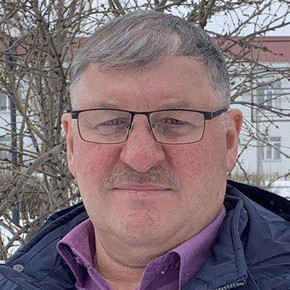Biography
Aleksandr Gaitur is a third-generation Jehovah's Witness. He was born and raised in Siberia, where his parents were exiled in 1949 along with their families from the Moldavian SSR for being Jehovah's Witnesses. In 1989, the Gaitur family was rehabilitated, having received the status of victims of political repression. But 34 years later, Aleksandr faced criminal prosecution for his faith.
He was born in 1962 in the village of Voroshilovo (Kurgan region). By this time, the family already had a son and a daughter. Later, Aleksandr had another brother and sister.
As a child, the boy was fond of sports and fishing. In 1969, the family was allowed to return to Moldova. There, Aleksandr graduated from a construction school with a degree in carpentry. At the same time, he studied at the Kishinev football school and for some time played in the youth national football team of the MSSR. He also played for district teams in hockey, basketball and volleyball.
Aleksandr has worked as a builder all his life. In the early 1980s, he moved to Kurgan for work, and later settled in the village of Novoberyozovo, Petukhov district. In 1989, Aleksandr met his future wife Svetlana, and in 1992 they got married. The following year, they embarked on the Christian path. "I have always considered myself one of Jehovah's Witnesses," recalls Aleksandr. "I was attracted to the truth by the example of my parents: serving God was the main goal of their lives, and they tried to instill in us, children, love for God and neighbors. I have also always been amazed at the accuracy of Bible prophecy fulfillment."
The couple raised three children, they already have three grandchildren. Recently, Aleksandr has been fond of fishing and beekeeping. Svetlana is a housewife, she likes to garden, run a farm in which there are chickens and a goat.
The criminal prosecution of Aleksandr had a negative impact on the life of his family. "I started having problems with my work, several clients refused my services," the believer said. The search and interrogation were stressful for his wife and 86-year-old mother. What was happening to Aleksandr made her remember the severity of the repression that she herself had to endure many years ago. She wonders: "Why, after the rehabilitation of our family, do my children and grandchildren have to face persecution again?"
Numerous relatives of Aleksandr and Svetlana worry about them and consider the criminal case against the believer unfair.
